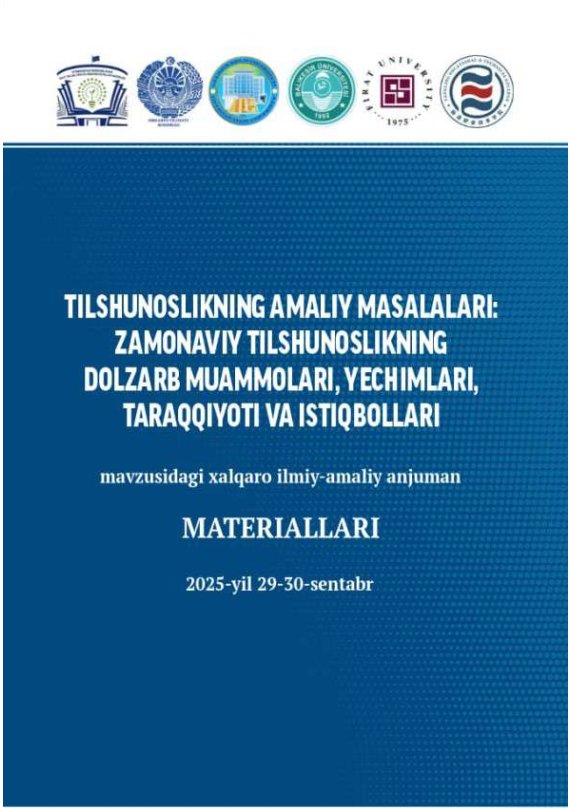TEACHING ENGLISH BASED ON LINGUISTIC AND PSYCHOPEDAGOGICAL APPROACHES
Keywords:
English Language Teaching, linguistic theory, psychopedagogy, structuralism, constructivism, socio-cultural theory, cognitive linguistics, learner-centered instruction, language acquisition.Abstract
This research article investigates the dynamic integration of linguistic and psychopedagogical approaches in English language instruction. The study posits that effective teaching cannot be achieved through a singular theoretical lens; rather, successful English language acquisition results from harmonizing structural linguistic knowledge with a learner-centered, psychologically responsive pedagogy. Through a comparative review of linguistic frameworks–such as structuralism, functionalism, and cognitive linguistics–and psychopedagogical models including constructivism, socio-cultural theory, and learner-centered instruction, this paper analyzes their mutual contributions to English language teaching. The article concludes that pedagogical practices rooted in this integration promote learner motivation, increase retention, and enhance communicative competence. Examples from empirical research, classroom practice, and case-based applications are presented to support the claim that holistic instruction fosters more inclusive and impactful language learning experiences.


